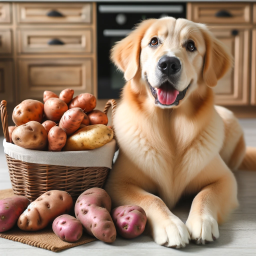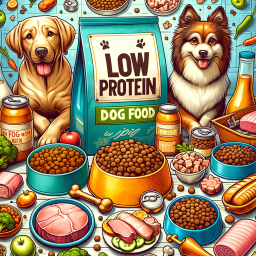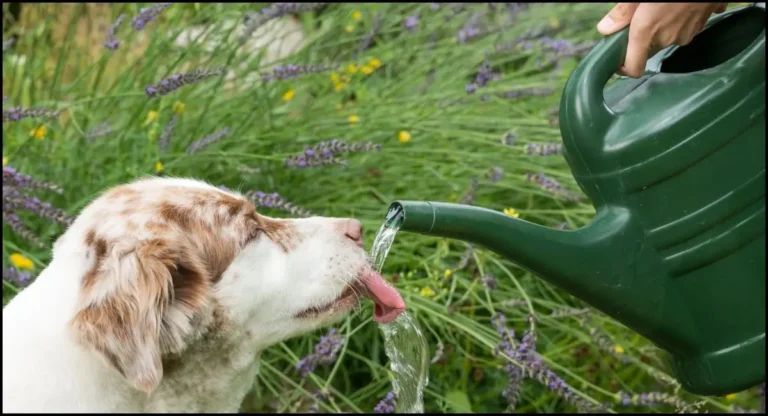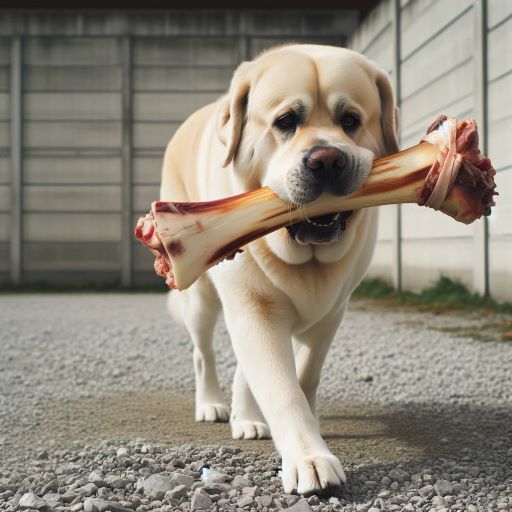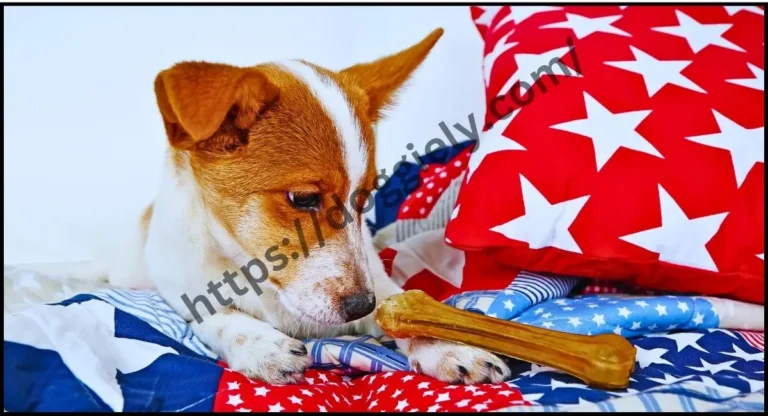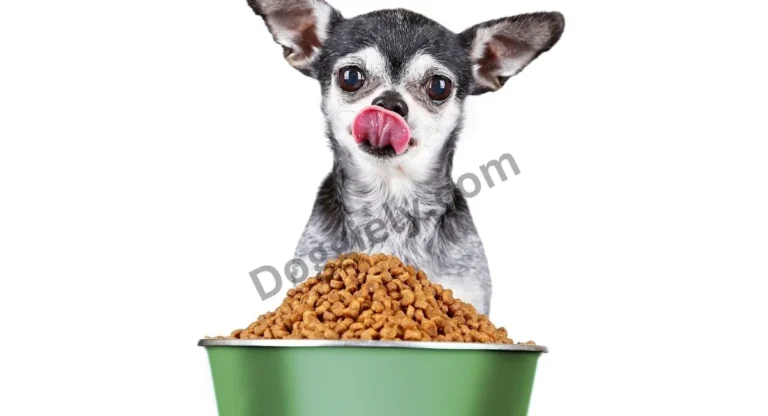Cow Hooves for Dogs: A Comprehensive Guide
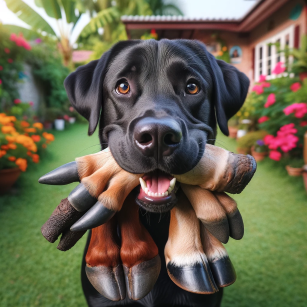
Cow Hooves for Dogs: To know it read the full article.
When it comes to keeping our dog companions happy and healthy, dog owners are always on the lookout for the best chew toys and treats. Among the myriad of options available, cow hooves have emerged as a popular choice.
But what exactly are cow hooves, and are they safe for your dog? This article delves into the world of cow hooves as chew toys for dogs, exploring their benefits, risks, and how to choose and use them safely.
What Are Cow Hooves?
Cow hooves are exactly what they sound like – the hooves of cows. After the cows are processed for meat, their hooves are cleaned, trimmed, and sometimes smoked or flavored before being sold as dog chews. They are known for their durability, making them a long-lasting chew option for dogs that love to gnaw.
Benefits of Cow Hooves for Dogs
- Dental Health: Chewing on hard surfaces like cow hooves can help scrape away tartar and plaque from your dog’s teeth, promoting better dental health.
- Mental Stimulation: Chewing is a natural behavior for dogs and provides mental stimulation, which is essential for their overall well-being.
- Cost-Effective: Compared to many other chew toys and treats, cow hooves are relatively inexpensive and last longer, providing more bang for your buck.
Safety Concerns and Precautions
While cow hooves can be a good chew option, they are not without risks:
- Choking Hazard: Small pieces can break off and pose a choking hazard or cause an intestinal blockage.
- Splintering: There is a risk of the hooves splintering, which can lead to mouth or digestive tract injuries.
- Hardness: Their hardness can cause dental fractures, especially in aggressive chewers or dogs with dental issues.
To mitigate these risks, always supervise your dog while they are chewing on a cow hoof and inspect the hoof regularly for signs of splintering or excessive wear.
How to Choose the Right Cow Hooves
When selecting cow hooves for your dog, consider the following:
- Size: Choose a size appropriate for your dog’s size and chewing style.
- Quality: Look for hooves that are natural and free from harmful chemicals or preservatives.
- Processing: Opt for hooves that have been properly cleaned and processed to minimize the risk of bacterial contamination.
Usage and Care
- Supervision: Never leave your dog unattended with a cow hoof.
- Hygiene: Regularly clean the hoof to prevent bacterial growth.
- Rotation: Rotate the hooves with other chew toys to keep your dog’s interest and reduce wear and tear.
Alternatives to Cow Hooves
If you decide that cow hooves are not suitable for your dog, there are many other options available, such as rubber or nylon chews, bully sticks, or dental chews. Each has its own set of benefits and potential risks, so it’s important to do your research and choose what’s best for your pet.
Navigating the Safety of Cow Hooves for Dogs
When it comes to dog chews, cow hooves are a popular option for pet owners looking for a long-lasting treat to keep their dogs entertained. However, like many pet products, they come with their own set of safety concerns that must be addressed. In this article, we explore the safety information related to cow hooves for dogs, helping you make an informed decision about whether they are suitable for your furry friend.
Understanding Cow Hooves
Cow hooves are the outer covering of cows’ feet, which are cleaned, trimmed, and often dried or smoked before being sold as dog chews. They are known for their durability and can provide hours of chewing entertainment. However, this durability is a double-edged sword, posing several risks.
Potential Risks
1. Choking Hazard and Intestinal Blockage
- Small pieces of hoof can break off during chewing, posing a choking risk.
- These fragments, if swallowed, can lead to intestinal blockages, a serious medical emergency.
2. Splintering and Sharp Edges
- Cow hooves can splinter, creating sharp edges that can injure a dog’s mouth, throat, or intestines.
- Ingestion of splintered pieces can lead to internal injuries or complications.
3. Dental Damage
- The hardness of cow hooves can result in broken teeth, particularly in aggressive chewers or dogs with existing dental issues.
4. Digestive Upset
- Some dogs may experience gastrointestinal upset, including diarrhea or vomiting, after chewing on cow hooves.
Safety Precautions
1. Supervision
- Always supervise your dog when they are chewing a cow hoof.
- Regularly inspect the hoof for signs of splintering or excessive wear.
2. Quality Control
- Purchase hooves from reputable sources to ensure they are properly cleaned and processed.
- Avoid hooves with added chemicals or preservatives.
3. Size Considerations
- Choose a size appropriate for your dog’s size and chewing style to minimize risks.
4. Regular Dental Check-ups
- Regular veterinary check-ups can help identify and prevent dental issues exacerbated by chewing hard objects.
5. Know Your Dog
- Consider your dog’s chewing habits and digestive sensitivity before introducing cow hooves.
Alternatives to Cow Hooves
If you decide cow hooves are not suitable for your dog, there are safer alternatives:
- Rubber or Nylon Chews: These are often designed to be safe and durable, with less risk of splintering.
- Dental Chews: Specifically formulated to be safe for chewing and aid in dental health.
- Rawhide: While also having its own risks, some forms of rawhide are safer and more digestible.
Exploring the Purchasing Options for Cow Hooves for Dogs
In the diverse world of dog chews, cow hooves stand out for their durability and popularity among pet owners seeking a lasting chew option for their canine companions. If you’re considering purchasing cow hooves for your dog, understanding where and how to buy them is essential. This article provides insights into the various purchasing options for cow hooves, helping you make an informed decision for your pet’s needs.
Where to Buy Cow Hooves
1. Pet Stores
- Local and chain pet stores often carry a selection of cow hooves.
- They typically offer a range of sizes and sometimes flavored options.
- Staff can provide insights and advice on the best options for your dog.
2. Online Retailers
- Websites like Amazon, Chewy, and Petco offer a wide variety of cow hooves.
- Online shopping provides the convenience of home delivery and often a broader selection.
- Customer reviews can guide you in choosing the best product.
3. Specialty Pet Boutiques
- These stores may offer premium or organic options.
- They might source their products from local farms or suppliers known for high-quality standards.
4. Veterinary Offices
- Some vets sell cow hooves, especially those specializing in dental health.
- Purchasing from a vet can offer peace of mind regarding the safety and quality of the product.
5. Farm Supply Stores
- They might offer more natural or less-processed options.
- Prices at farm supply stores can be more competitive.
6. Farmers’ Markets
- Some local farmers sell cow hooves directly, ensuring freshness and minimal processing.
- This option supports local agriculture and can provide insight into how the hooves are sourced and prepared.
Things to Consider When Buying Cow Hooves
1. Quality and Safety
- Look for hooves that are properly cleaned and free from harmful chemicals.
- Avoid products with artificial preservatives or flavorings.
2. Size and Dog Suitability
- Choose a size appropriate for your dog’s breed and chewing habits.
- Larger dogs will need bigger hooves, while smaller dogs might do better with smaller sizes.
3. Price Comparison
- Prices can vary significantly between stores and online platforms.
- Consider buying in bulk for cost savings, especially if your dog is a frequent chewer.
4. Ethical and Sustainable Sourcing
- Consider the source of the cow hooves. Ethically sourced products ensure animal welfare and sustainable practices.
5. Return Policy and Customer Service
- Understanding the return policy is important, especially if you’re trying cow hooves for the first time.
- Good customer service can be invaluable for addressing concerns and queries.
Deciphering Reviews and Recommendations for Cow Hooves as Dog Chews
As pet owners, we always strive to provide the best for our furry friends, including when it comes to choosing the right chew toys. Cow hooves, a popular choice for dog chews, often come with mixed reviews and recommendations. In this article, we delve into what pet owners and experts are saying about cow hooves for dogs, helping you navigate through these reviews to make an informed decision for your pet.
Understanding the Appeal of Cow Hooves
Cow hooves are lauded for their durability and ability to keep dogs entertained for hours. They are a natural, high-protein chew option that can also aid in dental health by reducing plaque and tartar buildup. Their affordability compared to other chews adds to their appeal.
Analyzing Reviews: Pros and Cons
Positive Reviews
- Long-Lasting Chew: Many pet owners appreciate how cow hooves keep their dogs engaged for extended periods, especially for aggressive chewers.
- Dental Health Benefits: Some reviews highlight improvements in dental hygiene.
- Cost-Effective: They are often praised for being more affordable than other chew toys.
- Natural and Low-Fat: Health-conscious owners appreciate the natural aspect and low-fat content.
Critical Reviews
- Safety Concerns: The most common negative reviews revolve around safety issues like choking hazards, the potential for intestinal blockages, and splintering risks.
- Odor: Some pet owners find that cow hooves can have a strong, unpleasant smell, particularly when they become wet from saliva.
- Hardness: There are concerns about the potential for broken teeth, especially in dogs that chew aggressively.
- Digestive Issues: Some dogs might experience gastrointestinal upset, including diarrhea or vomiting.
Expert Recommendations
Veterinarians and pet care experts often have mixed opinions on cow hooves. While recognizing their benefits, most advise caution due to the risks associated with their hardness and potential for splintering. Experts recommend supervision while your dog chews on a cow hoof and suggest regular inspection of the chew for any signs of damage.
Making an Informed Decision
When sifting through reviews and recommendations, consider the following:
- Your Dog’s Chewing Habits: Aggressive chewers might be at a higher risk for the potential downsides of cow hooves.
- Size and Age of Your Dog: Smaller or older dogs with more sensitive teeth may not be suitable for cow hooves.
- Monitor Your Dog: Supervision is key. Watch how your dog chews the hoof and check the hoof regularly for wear and tear.
- Consult Your Veterinarian: Before introducing a new chew toy, it’s always best to consult with your veterinarian, especially if your dog has a history of dental issues or digestive sensitivity.
Essential Preparation and Storage Tips for Cow Hooves as Dog Chews
For pet owners who choose cow hooves as a chew option for their dogs, proper preparation and storage are crucial for ensuring these treats remain safe and enjoyable.
Cow hooves, known for their durability and appeal to many dogs, require certain handling and storage techniques to maintain their quality and prevent health hazards. This article provides practical advice on preparing and storing cow hooves for your canine companion.
Preparation of Cow Hooves
Cleaning and Inspecting
- Thorough Cleaning: Before giving a cow hoof to your dog, it’s essential to clean it thoroughly. Rinse under hot water to remove any residual dirt or debris.
- Inspection for Sharp Edges: Examine the hoof for any sharp edges or splinters that could harm your dog. File down any rough spots if necessary.
Boiling for Safety
- Boiling: Some pet owners choose to boil cow hooves for a short time to kill any potential bacteria. However, this should be done cautiously as over-boiling can make the hooves brittle and more prone to splintering.
- Cooling Down: After boiling, let the hooves cool completely before offering them to your dog.
Storage Tips for Cow Hooves
Keeping Them Dry
- Moisture-Free Environment: Store cow hooves in a dry place. Moisture can lead to mold growth and decrease the chew’s longevity.
- Airing Out: After your dog has chewed on a hoof, let it air dry before storing to prevent bacterial growth.
Proper Containers
- Airtight Containers: Store the hooves in airtight containers to keep them clean and prevent them from emitting any odor.
- Separation from Food: Keep cow hooves stored separately from your dog’s food and human food to avoid cross-contamination.
Regular Inspection
- Checking for Spoilage: Periodically check the hooves for signs of spoilage, such as mold or an unusually foul odor.
- Discarding Damaged Hooves: If a hoof becomes excessively worn, splintered, or otherwise damaged, it should be discarded to avoid any risk of injury or ingestion.
Additional Considerations
Handling Precautions
- Washing Hands: Always wash your hands after handling cow hooves, especially before eating or preparing food.
- Keeping Away from Children: Store cow hooves where children cannot access them, as they could pose a choking hazard.
Rotation and Variety
- Chew Toy Rotation: To prevent your dog from getting bored and to extend the life of the hooves, rotate them with other safe chew toys.
- Offering Variety: Providing a variety of chew toys can help satisfy your dog’s chewing needs and reduce the risk associated with any single type
- of chew.
Conclusion
Cow hooves can be a great chew option for dogs, offering numerous benefits such as dental health and mental stimulation. However, it’s crucial to be aware of the potential risks and take appropriate precautions. Always supervise your dog during chew sessions, choose high-quality hooves, and maintain good hygiene practices. With these considerations in mind, cow hooves can be a safe and enjoyable treat for your furry friend. I hope you have known well about this topic: Cow Hooves for Dogs.
Related Posts:
Read More: Why Does My Dog Open His Mouth When I Pet Him? 7 Reasons
Read More: Why Does My Dog Keep Sniffing My Legs: 5 Common Reasons
Read More: Why Does My Dog Bite Me In The Morning? 2 Way To safe From
Read More: Why Are My Dogs Balls Black? Best Number 1 Answer
Read More: Why Do Dogs Like Peanut Butter?
Read More: Why Does My Dog Nibble My Ear? 10 Reasons
Read More: Why Does My Dog Move Its Bed Around?
Read More: Why Does My Dog Bring Me His Food?
Read More: Why Does My Dog Lay His Head Over My Neck? 7 Reasons
